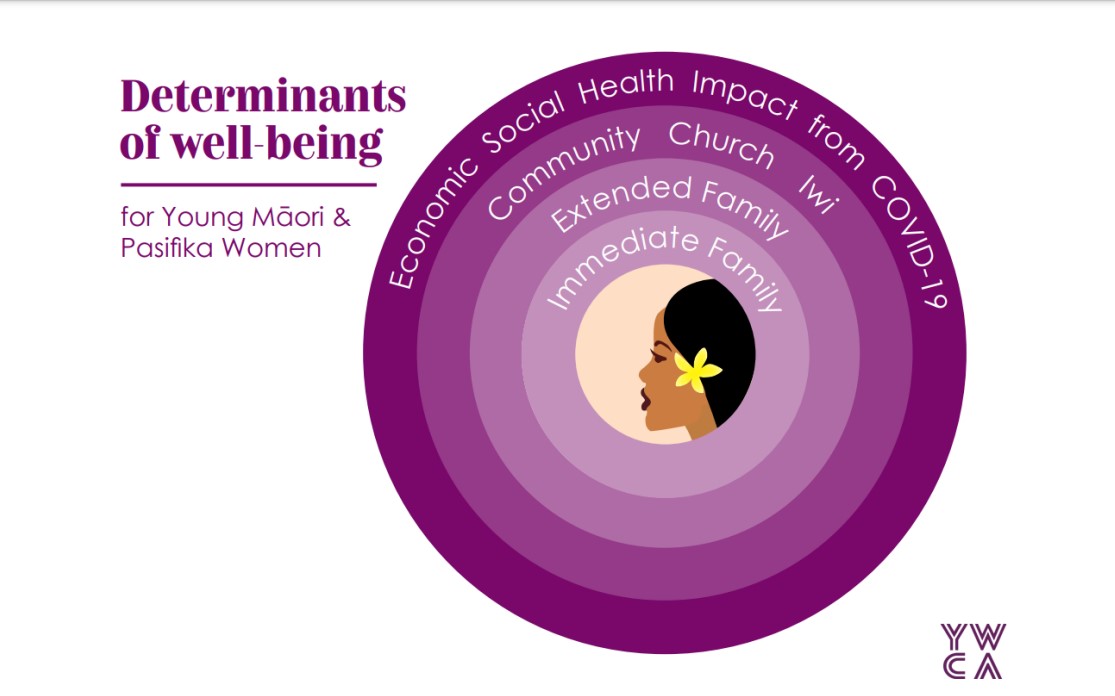Working in the Gorse: Criticality in Rehabilitation Healthcare Education in Aotearoa|New Zealand
Abstract
Globally, the dominant forms of rehabilitation healthcare education take a positivistic, scientific approach that views the body mechanistically, disability as a deficit, and Western worldviews as superior to others. However, privileging these approaches occludes other important ways of understanding bodies, health, and rehabilitation. In response to these limited yet pervasive ways of constructing our disciplines, we urge rehabilitation healthcare educators to enact “criticality.” A critical perspective helps students think critically about their learning at a political and sociocultural level. As evidence of how this criticality opens new and valuable avenues for rehabilitation healthcare education, we point to existing research in global health along with our own experiences attempting–and often struggling–to enact criticality in our teaching at the tertiary level in Aotearoa |New Zealand.
References
Brown, H., & Bryder, L. (2023). Universal healthcare for all? Māori health inequalities in Aotearoa New Zealand, 1975-2000. Social Science & Medicine, 319, Article 115315. https://doi.org/10.1016/j.socscimed.2022.115315
Brown, T., Cosgriff, T., & French, G. (2008). Learning style preferences of occupational therapy, physiotherapy, and speech pathology students: A comparative study. The Internet Journal of Allied Health Sciences and Practice, 6(3), Article 7.10.46743/1540-580X/2008.1204
Came, H., Warbrick, I., McCreanor, T., & Baker, M. (2020). From gorse to ngahere: An emerging allegory for decolonising the New Zealand health system. The New Zealand Medical Journal, 133(1524), 102–110.
Christopher, C., Joubert, R. W., & Pillay, M. (2021). "Walking with a smile but her shoulders are hanging down": Exploring "Coloured" women's occupational resistance in the face of personal, historied and societal suffocation. South African Journal of Occupational Therapy, 51(4), 4-12. https://dx.doi.org/10.17159/2310-3833/2021/vol51n4a2
Cobbing, S. (2021). Decoloniality in physiotherapy education, research and practice in South Africa. The South African Journal of Physiotherapy, 77(1), Article 1556. https://doi.org/10.4102/sajp.v77i1.1556
Davis, G., & Came, H. (2022). A pūrākau analysis of institutional barriers facing Māori occupational therapy students. Australian Occupational Therapy Journal, 69(4), 414–423. https://doi.org/10.1111/1440-1630.12800
Ensuncho, M. H. (2023). Decolonial practices in higher education from the Global South: A systematic literature review. Journal of Comparative and International Higher Education, 15(5), 12-26. 10.32674/jcihe.v15i5.5299
Faircloth, S. C., Hynds, A., Jacob, A., Green, C., & Thompson, P. (2016). Ko wai Au? Who am I? Examining the multiple identities of Māori youth. International Journal of Qualitative Studies in Education, 29(3), 359-380. https://doi.org/10.1080/09518398.2015.1053158
Gibson, B. E., Nicholls, D. A., Synne-Groven, K., & Setchell, J. (2018). Manipulating practices: A critical physiotherapy reader. Cappelen Damm Forlag.
Kayes, N. M., & Papadimitriou, C. (2023). Reflecting on challenges and opportunities for the practice of person-centred rehabilitation. Clinical Rehabilitation, 37(8), 1026–1040. https://doi.org/10.1177/02692155231152970
King, P. T., & Cormack, D. (2022). 'It feels special when you're Māori'—voices of mokopuna Māori aged 6 to 13 years. Journal of the Royal Society of New Zealand, 52(4), 376-395. https://doi.org/10.1080/03036758.2022.2064520
Kronenberg, F., & Pollard, N. (2005). Introduction: A beginning. In F. Kronenberg, S. S. Algado, & N. Pollard (Eds.), Occupational therapy without borders: Learning from the spirit of survivors (pp. 1-14). Elsevier Churchill Livingstone.
Kronenberg, F., Pollard, N., & Sakellariou, D. (Eds.). (2011). Occupational therapies without borders: Volume 2. Towards an ecology of occupation-based practice. Elsevier.
Lurch, S., Cobbing, S., Chetty, V., & Maddocks, S. (2023). Challenging power and unearned privilege in physiotherapy: Lessons from Africa. Frontiers in Rehabilitation Sciences, 4, Article 1175531. https://doi.org/10.3389/fresc.2023.1175531
Manstead, A. S. R. (2018). The psychology of social class: How socioeconomic status impacts thought, feelings, and behaviour. British Journal of Social Psychology, 57(2), 267–291. https://doi.org/10.1111/bjso.12251
McIlroy, G., & Storbeck, C. (2011). Development of Deaf identity: An ethnographic study. The Journal of Deaf Studies and Deaf Education, 16(4), 494–511. https://doi.org/10.1093/deafed/enr017
Mtima-Jere, P., Mathis, L., Chonde, R., Klein, A., Phiri, C., Strieder, W. P., & Felter, C. (2023). Understanding colonialism and its influences on contemporary physiotherapy education and research: Students' perspectives on decolonializing solutions. Physiotherapy Theory and Practice, 1-10. https://doi.org/10.1080/09593985.2023.2180141
Nicholls, D. A., & Gibson, B. E. (2010). The body and physiotherapy. Physiotherapy Theory and Practice, 26(8), 497-509. https://doi.org/10.3109/09593981003710316
Nicholls, D. A. (2017). The end of physiotherapy. Routledge.
Nicholls, D. A. (2022). Physiotherapy otherwise. Tuwhera Open Access. https://ojs.aut.ac.nz/tuwhera-open-monographs/catalog/book/8
Pillay, M. (2001). 'Do you speak practice-ese?' A discourse of practice for sharing communication. International Journal of Language & Communication Disorders, 36(Suppl), 351–356. https://doi.org/10.3109/13682820109177910
Pillay, M., & Kathard, H. (2018). Audiology and speech-language pathology: Practitioners' reflections on indigeneity, disability and neo-colonial marketing. Disability and the Global South, 5(2), 1365-1384. https://doi.org/https://disabilityglobalsouth.files.wordpress.com/2018/08/dgs_05_02_02.pdf
Pillay, M., Quigan, E., & Kathard, H. (2023). Questions of suitability: The Sustainable Development Goals. International Journal of Speech-Language Pathology, 25(1), 162–166. https://doi.org/10.1080/17549507.2022.2160013
Pillay, M., Kathard, H., Hansjee, D., Smith, C., Spencer, S., Suphi, A., Tempest, A., & Thiel, L. (2024). Decoloniality and healthcare higher education: Critical conversations. International Journal of Language & Communication Disorders, 59(3), 1243-1252. https://doi.org/10.1111/1460-6984.12982
Putnam, B., Pivac Alexander, S., McMenamin, K., & Welch, D. (2022). Deaf community views on paediatric cochlear implantation. New Zealand Medical Journal, 135, 26-39.
Quigley, A., Myezwa, H., & McArthur, C. (2023). Equity, diversity, and inclusion in rehabilitation sciences. Frontiers in Rehabilitation Sciences, 4. https://doi.org/10.3389/fresc.2023.1115985
Royal, T. A. C. (Ed.). (2003). The woven universe: Selected writings of Rev Māori Marsden. Estate of Rev Māori Marsden.
Skelton, T., & Valentine, G. (2003). "It feels like being Deaf is normal": An exploration into the complexities of defining D/deafness and young D/deaf people's identities. Canadian Geographer, 47(4), 451–466. https://doi.org/10.1111/j.0008-3658.2003.00035.x
Smiler, K., & McKee, R. L. (2007). Perceptions of Māori Deaf identity in New Zealand. The Journal of Deaf Studies and Deaf Education, 12(1), 93–111. https://doi.org/10.1093/deafed/enl023
Smith, L. T. (2021). Decolonizing methodologies (3rd ed.). Bloomsbury.
van Vuuren, C. J. (2022). Impactful educational transitions: Crossroads for physiotherapy education in South Africa? South African Journal of Physiotherapy, 78(1), Article 1638. https://doi.org/10.4102/sajp.v78i1.1638
Waitangi Tribunal. (2023). Hauora: Report on Stage One of the Health Services and Outcomes of Kaupapa Inquiry (WAI 2575). National Library of New Zealand. www.waitangitribunal.govt.nz
Copyright (c) 2024 Mershen Pillay

This work is licensed under a Creative Commons Attribution 4.0 International License.


